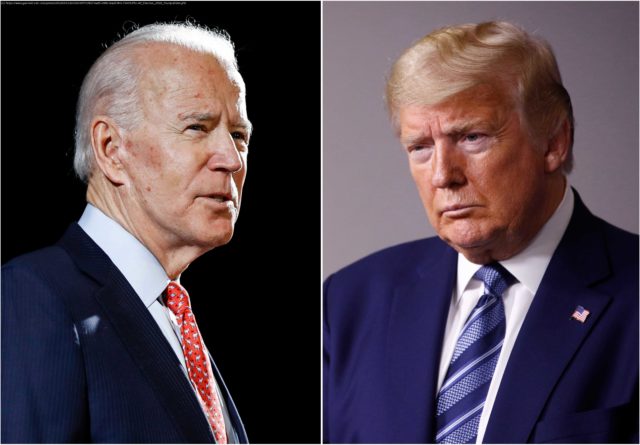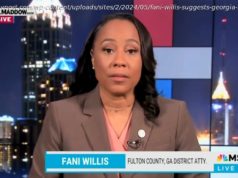For nearly two years, dozens of politicians non-politicians alike met with voters, held fundraisers and dedicated much of their lives in an attempt to …
For nearly two years, dozens of politicians non-politicians alike met with voters, held fundraisers and dedicated much of their lives in an attempt to be their party’s nominee. Now, we’re 100 days out from the general election and two candidates remain. Former Vice President Joe Biden, the presumptive Democratic nominee, and President Donald Trump will face off in November. In the past year, Biden competed with one of the largest and most diverse Democratic fields in history and overcame a slow start in the early voting states to eventually beat them all. Trump has had his reelection bid challenged by an impeachment trial and a global pandemic, while also seeing long-shot candidates try to convince Republicans that they are the better choice for the party. Here are some of the top moments that got us to where we are now and what you have to look forward to: In late 2019, Trump’s pending impeachment trial dominated news coverage, leaving pundits and voters both wondering whether it would hurt or help the president’s reelection efforts. The House of Representatives approved two counts of impeachment against Trump on charges of abuse of power and obstruction of Congress in December. But he went on to be acquitted on the charges by the Senate in early January 2020. Amid the trial, Democrats were still campaigning for their presidential primary.100 days: What can shake things up in the election home stretch? Here are 5 possibilities Several candidates took aim at the president for blocking key White House officials from speaking to lawmakers ahead of the trim. And the scheduling of the trial just before the first-in-the nation Iowa caucuses caused issues for candidates Sens. Bernie Sanders, Elizabeth Warren and Amy Klobuchar, who were running for president and also were jurors in the impeachment trial. They sometimes spent their days in D. C. and headed out to campaign events elsewhere in the evenings. But the trial showcased the Republican Party’s unity, as nearly all Republican senators continued to support the president and voted to acquit him of the charges. Trump frequently called the charges and the trial a “witch hunt” to keep him from being reelected. Seen by many as the backbone of the Democratic party, voters of color flexed their political muscle early on in the primary. Former South Bend Mayor Pete Buttigieg started off strong in the early voting states, exceeding expectations in Iowa and New Hampshire. But throughout the primary season Buttigieg struggled to gain traction with Black and Latino voters. As the campaign headed to Nevada, which has a substantial Latino population, and South Carolina, with a large Black population, many pundits predicted that he would struggle. The pundits were right. Sen. Bernie Sanders won Nevada by a large margin, with Biden in a distant second, followed by Buttigeig. Sanders credited much of his win to his support from Latino voters. In South Carolina, the fourth state to vote, Biden’s campaign was revived by a blowout victory. His win is attributed to the large support he received from Black voters. Shortly after Biden’s big win, several presidential contenders, including Buttigieg and Klobuchar, who also struggled with support from voters of color, dropped out. Throughout the primary, voters of color solidified their role in making or breaking a presidential candidate’s campaign. Sanders continued to have a strong hold with Latino voters, which helped him win the state of California and other states in the West like Colorado.






